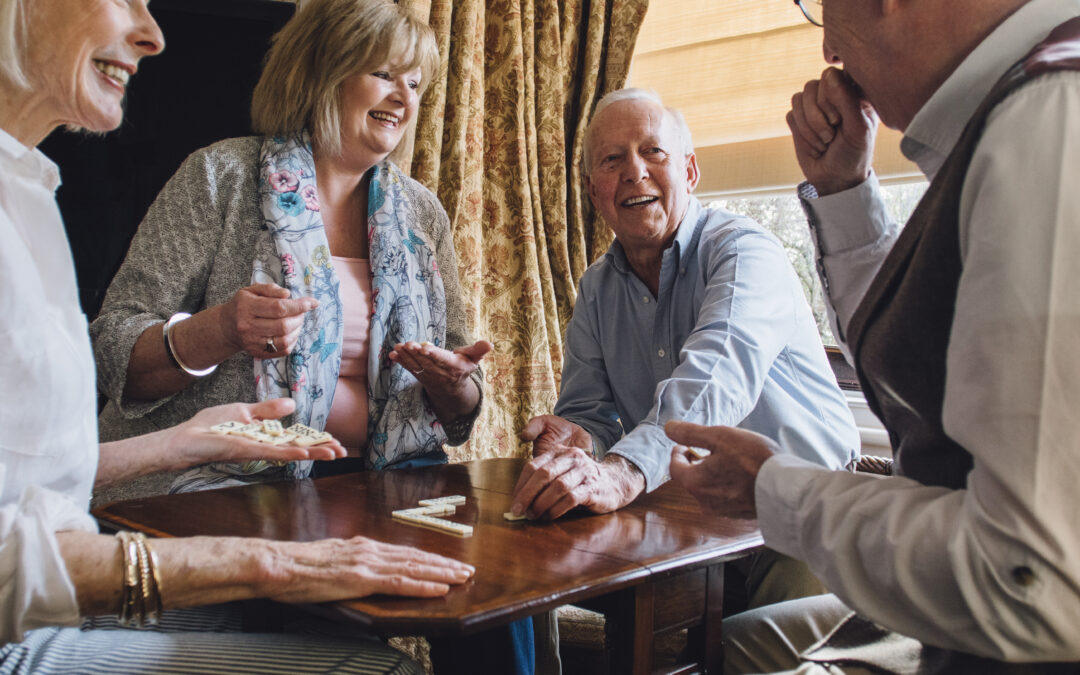Mrs. F was a retiree (65+) who lived at home independently with the help of regular visits by care workers. With her children and grandchildren close by, she enjoyed an active and community focused lifestyle. After a fall at home which resulted in a spinal injury, Mrs. F was taken to hospital. However, the bed-blocking crisis gripping the NHS continues to impact on local lives and the hospital was unable to admit Mrs. F due to a shortage of beds.
In what was intended to be an interim solution, Mrs. F came to Askham Court for a period of 16 weeks’ rehabilitation. For Mrs. F and her family, the most important goal for her recovery was to be able to return safely to the community which she knew and loved.
In consultation with Mrs. F and her children, our expert Multi-Disciplinary Team organised a bespoke package of treatment which included Physiotherapy and Occupational Therapy. Mrs. F also engaged in hand therapy, gait training, leg strengthening and stepping practice in Physiotherapy as well as preparing and chopping ingredients and cooking meals with the Occupational Therapist. After 16 weeks, to the delight of all concerned, our dedicated care and support proved so successful that admission to hospital was no longer necessary.
Homeward – not hospital – bound
Upon admission to Askham, Mrs. F was unable to walk and carried out all manner of transfers – including sitting and standing – with the use of a frame. She was experiencing weakness throughout her body and needed one-to-one support with all aspects of her personal care.
Upon discharge, Mrs. F could walk unaided, at times using a quad walking stick. She could safely walk up and down a set of stairs using a handrail and was able to complete all transfers unaided. This included actions necessary for a confident transition home such as: getting in and out of bed, chairs and her wheelchair; tub, shower and toilet transfers and the ability to transfer safely in and out of vehicles.
Towards the end of her stay, Mrs. F began going out on day trips with other residents and staff and was eventually able to complete light shopping independently. Feeling much more like her old self and keen to reprise her sociable lifestyle, Mrs. F began cooking meals for herself and others in the communal kitchen, with minimal assistance! She was also able to carry out her own personal care including toileting, dressing and showering.
Less than four months after her admission, we are incredibly pleased and proud that Mrs. F has returned to a ground floor flat situated in the same block, directly below her previous home. Although she could have managed the stairs to her original flat, living on the ground floor relieved some pressure and, understandably, made her feel safer. Mrs. F is once again enjoying life with her family and friends with the support of a regular care package.
A spinal injury is not something that most people ever think about happening to themselves, or to their loved ones. But, perhaps surprisingly, there are over 40,000 people living with spinal cord injury in the UK alone.
Most people who suffer a spinal cord injury are admitted to hospital for a period of three to nine months, depending on the level of injury, to recover and rehabilitate. Here at Askham, we think differently. We understand, and regularly see first-hand, that avoiding hospital stays has physical, emotional and financial beneficial for the individual in question, their families and, of course, the UK taxpayer! We’re passionate about getting people back into their own homes, as quickly and safely as possible, with the maximum level of regained independence. Just like Mrs. F.
Please download a copy of the case study, including the quantitative outcomes reached by Mrs F:

